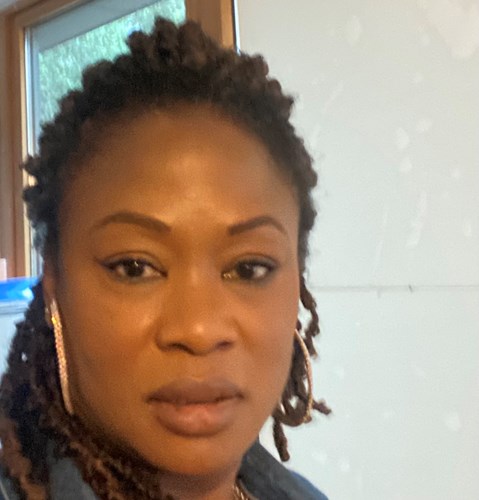International Women's Day - My experiences as a neurodiverse black woman
 Funmi Kadiri is an administrator at Essex Partnership University NHS Foundation Trust and shares her story about being a neurodiverse black woman for International Women’s Day (Friday 8 March), which this year focuses on the theme of Inspire Inclusion.
Funmi Kadiri is an administrator at Essex Partnership University NHS Foundation Trust and shares her story about being a neurodiverse black woman for International Women’s Day (Friday 8 March), which this year focuses on the theme of Inspire Inclusion.
My career background is in pathology. As a woman of colour who has all the Ds - dyslexia, dyspraxia and dyscalculia - my journey to EPUT has had a lot of twists and turns.
Dyslexia primarily affects reading and spelling skills and processing and remembering information. Dyscalculia is a difficulty in understanding numbers. And dyspraxia affects co-ordination, balance and movement.
Previously, I have had a lot of colourful words said to me due to my dyslexia.
Without reasonable adjustments in the past, I had to develop coping mechanisms. It felt like I was often judged and compared to people without dyslexia.
This felt akin to being forced to climb a tree without a ladder, eroding my confidence.
With the right support, I can be as good as someone without dyslexia.
Whilst also working a full-time job, I threw myself into work to encourage greater inclusion. I became the lead for dyslexia and mental health, and championed the needs for staff from black and ethnic minority backgrounds.
I worked with amazing people on this project. At last, my voice was heard, and it felt good.
I decided to change my career by studying business administration whilst simultaneously working a full-time job. I also maintained my inclusion work since I enjoyed it so much.
I worked in a number of jobs before joining EPUT and I am super happy in my job. My managers have shown great empathy and understanding towards me, and I can't ask for more.
Outside of work, I’m proud to be a single parent to both my kids. They are doing exceptionally well and fighting against all of the negative stereotypes of black children growing up in single-parent households.
For myself, working at EPUT, I can say I am not judged on my learning and differences, and I can be myself.
Useful links
The British Dyslexia Association has advice and information for people with dyslexia and dyscalculia, and information and resources for teachers and employers.
The Dyslexia Association also has advice and information for people with dyslexia, and information and resources for teachers and employers.
The Dyscalculia Association has advice and information for people with dyscalculia and training and resources for teachers.
Dyslexia Action provides training for professionals who work with people with dyslexia and specific learning difficulties.
